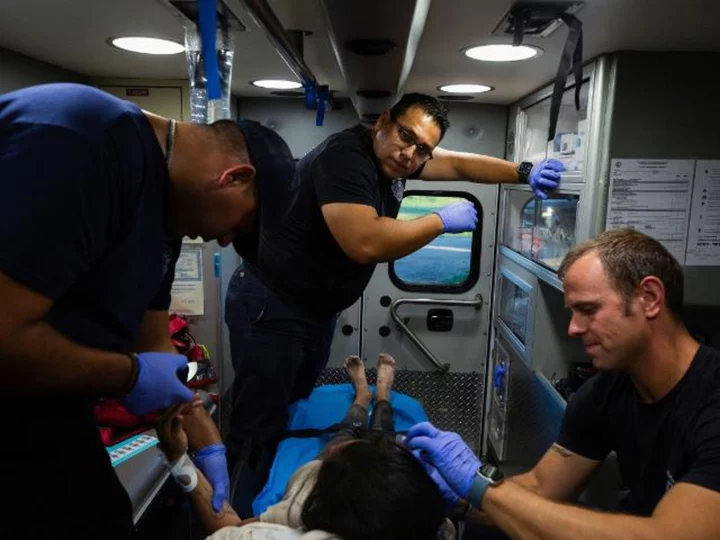Extreme heat will generate about $1 billion in health care costs every summer as more people get rushed to the emergency room or admitted to the hospital to treat temperature-related conditions, a recent study found.
Searing heat will be responsible for nearly 235,000 emergency room visits and more than 56,000 additional hospital admissions across the nation, according to a study by Virginia Commonwealth University and the Center for American Progress.
"With most of the country expected to experience increasing temperatures, our team hopes that this information highlights the need to reevaluate and expand our perception of how environmental factors, like heat, impact human health to individually and collectively safeguard our quality of life," said Stephen Fong, co-author of the report and director of Virginia Commonwealth's Integrative Life Sciences doctoral program.
The study looked at temperature and insurance claims data in Virginia during the five summers of 2016 to 2020. The researchers then extrapolated the data nationally.
More than 700 people, on average, die from heat each year, according to the Centers for Disease Control and Prevention. And the National Weather Service lists heat as the top weather-related cause of fatalities in the US -- more than cold, hurricane winds, tornadoes and flooding.
But some analyses have found high temperatures to be even more lethal. One CDC study of death certificates estimated that more than 10,000 Americans died from heat-related illnesses between 2004 and 2018. Another study, published last year in the journal JAMA Network Open, found that as many as 20,000 deaths occurred because of extreme heat between 2008 and 2017.
Extreme heat is a greater threat for certain segments of the population, including low-income communities, communities of color and urban neighborhoods known as "heat islands" that have limited greenery and concentrations of buildings, roads and other infrastructure, the Virginia Commonwealth and Center for American Progress study said.
The risks of extreme heat are only expected to grow in coming years. There have been more than 1,900 record high temperatures in the US so far this month, per the National Oceanic and Atmospheric Administration.

